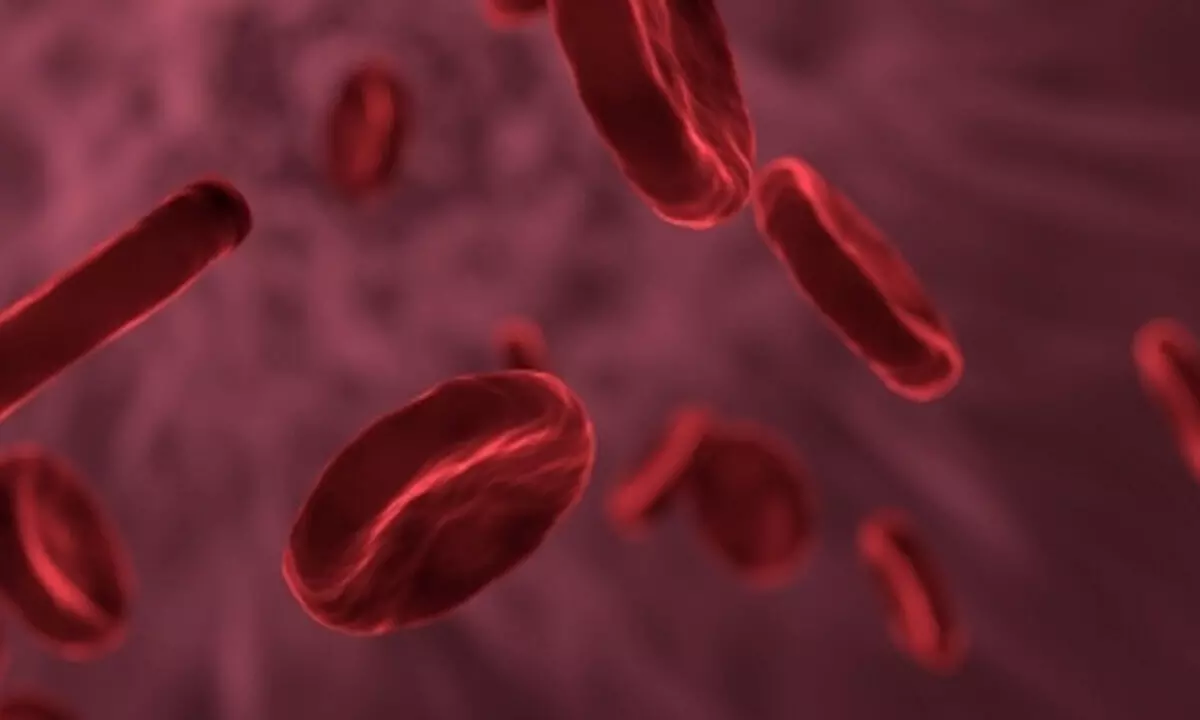Gut microbes may be behind high blood clot risk in some Covid patients
Share :

Some Covid-19 patients suffer high blood clot risk. Turns out, gut microbes are the culprit, according to a study.
Beijing: Some Covid-19 patients suffer high blood clot risk. Turns out, gut microbes are the culprit, according to a study.
A gut microbial metabolite called 2-methylbutyrylcarnitine (2MBC) plays a role in exacerbating thrombosis -- the formation of blood clots, Chinese researchers report in the journal Cell Metabolism.
The results also revealed that 2MBC is accumulated in individuals with Covid-19, potentially explaining why these patients are at increased risk of thrombosis.
"Our study provides mechanistic insight by implicating 2MBC as a metabolite that links gut microbiota dysbiosis to elevated thrombotic risk," said Sifan Chen of Sun Yat-Sen University in China.
Thrombosis is the leading cause of death and disability related to major adverse cardiovascular events (MACE) like heart attacks and stroke. Numerous conditions such as Covid-19 and metabolic disorders can lead to a heightened thrombotic risk. Yet the underlying mechanisms remain poorly understood.
Extensive evidence has demonstrated an association between gut microbiota dysbiosis and heightened thrombosis potential.
Past studies have shown that gut microbiota-derived metabolites can increase the activity of platelets -- a component of blood involved in the formation of blood clots -- as well as the risk of cardiovascular diseases.
"Even though gut microbiota dysbiosis has been intensively described in patients with Covid-19 and metabolic disorders that are associated with heightened thrombotic risk, their causal link and the mechanisms contributing to thrombotic complications remain poorly understood," Chen said.
Researchers conducted multi-metabolomic analyses and identified 2MBC as a critical host and gut microbial metabolite contributing to the heightened thrombotic risk.
2MBC belongs to a class of compounds known as short branched chain acylcarnitines, which have been previously associated with numerous metabolic disorders including obesity, diabetes, non-alcoholic steatohepatitis, and hypertension.
In a study involving 64 people with Covid, 12 healthy patients, and 12 individuals hospitalised without Covid-19, the researchers found that 2MBC is accumulated in patients with Covid and in patients with MACE. The elevated level of 2MBC did not decline even after a complete clearance of the virus in patients with Covid-19.
In mice, 2MBC promoted platelet hyperreactivity and thrombus formation, and elimination of gut microbiota with an antibiotic cocktail largely suppressed increased plasma 2MBC levels as well as the heightened thrombosis tendency upon SARS-CoV-2 infection.
"Our findings revealed a new biological function of 2MBC as a signalling molecule and unveiled a potential mechanism contributing to the increased thrombotic incidence in Covid-19," Chen said.
The authors claim that the findings may hint at a previously unknown driving factor for increased thrombotic potential in metabolic disorders, such as obesity and diabetes, above and beyond traditional risk factors.










